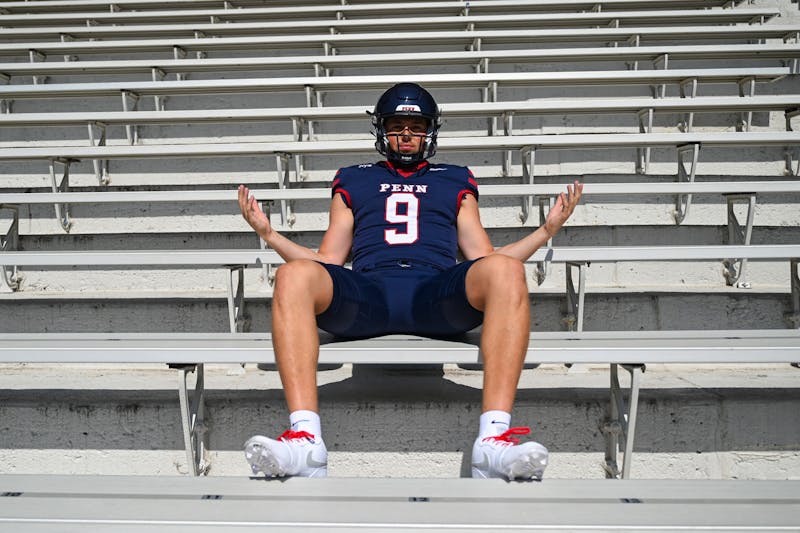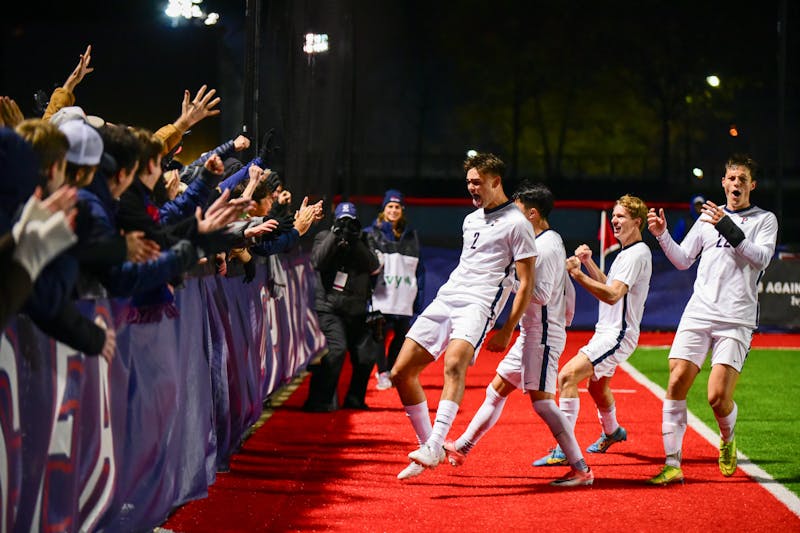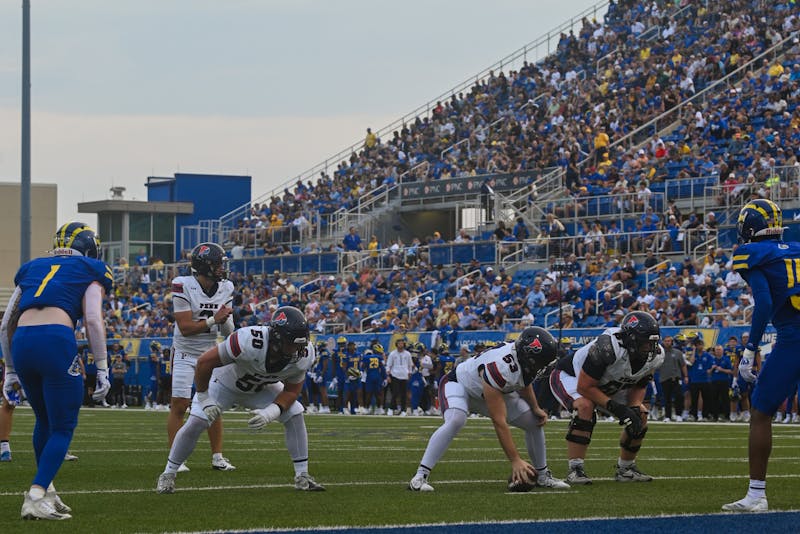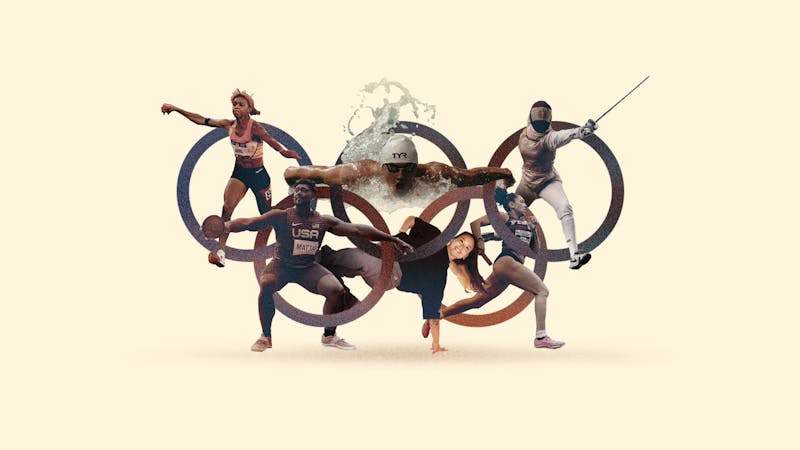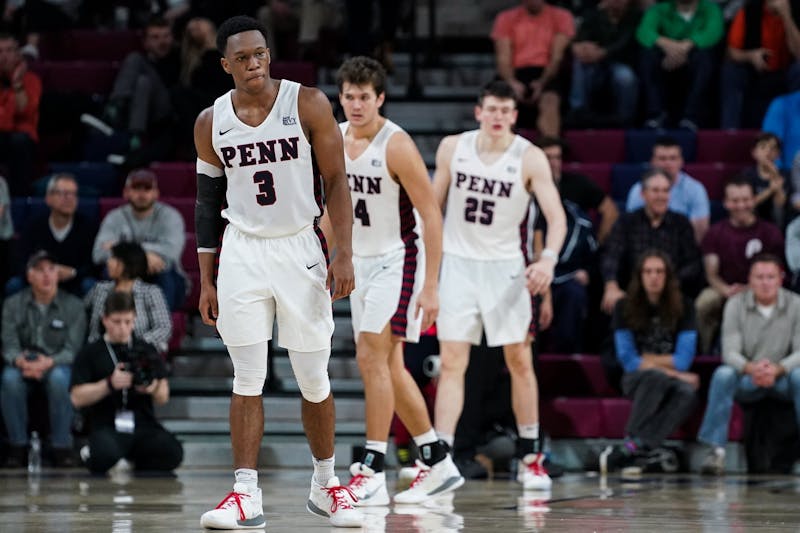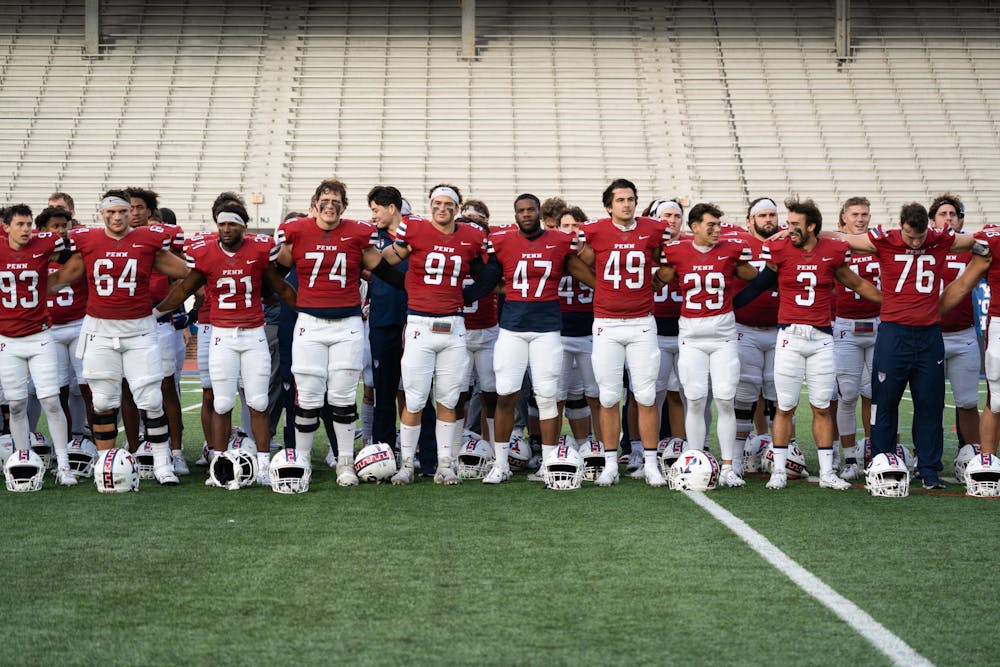
The Minneapolis Miracle. The Mile High Miracle. The Music City Miracle — college football edition.
There are some games in football history that we will never forget — Tom Brady’s infamous 28-3 comeback against the Atlanta Falcons in the Super Bowl and Nick Foles leading the Philadelphia Eagles to their first Super Bowl title on a legendary trick play, to name a few. That feeling of jubilation, awe, and unity that sports can bring to a community is something that I believe is what makes the game so special.
Despite this, I often ask myself the value that these memorable games have in our lives. After all, that exuberant feeling we get from watching sports is often hit with the harsh reality of life. No matter the outcome, we may have to go back to school the next day, endure a boss that we may not like, or of course, pay off that next annoying bill. Nostalgia of a game can quickly settle in as we resume the monotonous nature of our daily lives.
To answer my question, I had to look no further than my fall break trip to Nashville. Because as it turns out, I was about to witness the greatest upset in Southeastern Conference football history when the Vanderbilt Commodores took down No. 1 Alabama by a score of 40-35.
When my friends decided on potential fall break plans, I put forth the idea of going to Nashville, a city we had never been to before. It was also, coincidentally, the week that a college football “blue blood” was going to play. In a David-and-Goliath-like storyline, the Crimson Tide entered the game heavy favorites over the Commodores, who were unranked and already had two losses in the season. Hoping to see future NFL players put on a show against a team that, quite frankly, we were hoping to keep the game within two scores was our ideal Saturday.
But little did we know, we were totally wrong.
From the first play of the game, you could immediately tell the intensity from Vanderbilt was on another level. A week removed from their stellar win against the Georgia Bulldogs in a primetime game, Alabama looked flat and inactive. As the game went on, the Vanderbilt student section continued to show up, jumping, chanting, and screaming at the top of their lungs for the shocking results that were unfolding right before their eyes: A team that looked utterly unstoppable with a Heisman Trophy candidate quarterback at its helm losing to a scrappy, hard-nosed team, led by a fearless quarterback with nothing to lose.
At the game’s final kneel down, the fairytale dream continued as pandemonium broke loose. Getting to rush the field and take photos with Vanderbilt players, all while seeing a goalpost get thrown in the Cumberland River, is an experience I never thought I would see heading into this trip. The win was monumental for Vanderbilt football as it was their first ever win against a No. 1 team and the first time the Commodores beat the Crimson Tide since 1984.
After this experience, I could only imagine if I could ever feel this kind of hype at a Penn sporting event.
Known as the Ivy League of the South, I see several similarities between Vanderbilt and Penn. Both are not traditionally known to be “sports schools,” as students come to these universities for a world-renowned educational experience that is sure to set them up for a financially sound future.
2024 College graduate Jason Wang, who is now enrolled at the Vanderbilt School of Medicine, got to experience the stark differences between Penn and what he saw at Vanderbilt’s game against Alabama.
“From what I hear, most Vanderbilt games don’t draw much attention in terms of the crowds, but for the Alabama game, the whole student section showed out and brought the energy and school spirit,” Wang said. “At Penn games, the stadium feels empty, and the fans don’t feel engaged with the game.”
Wang is right — evidence has found that Penn has seen increasingly lower attendance at home football games, with no football game ever surpassing 20% attendance in a storied stadium like Franklin Field. In fact, likewise, before their game against Alabama, Vanderbilt football games traditionally were not sold out, and student attendance was modest at best, according to Wang.
But that all changed with one football game.
Vanderbilt, which was never known to be a “football school,” became a national sensation overnight, the feel-good underdog story that had a campus buzzing with excitement like never before. The Commodores were the only talk in town — something to which I personally can attest.
Thus, I believe there are two unique things that Quakers football can try to at least attempt to replicate what I got to experience, and I hope every Penn student gets to experience — bringing the Villanova Wildcats basketball rivalry into football as well as increasing the overall fan experience at Franklin Field.
Vanderbilt got to play Alabama because they are in the SEC. No matter the discrepancy in talent on paper, Vanderbilt got a chance to play Alabama — an opportunity is all you need. Although Penn is in the Ivy League, it has had a long-storied rivalry with Villanova in the Big 5. Despite having a basketball rivalry with Villanova, a football rivalry never gained traction.
I believe scheduling a game against Villanova in particular is crucial because it can showcase Penn’s ability to compete with high-level FCS teams as well as keep the traditional Big 5 name brand recognition matchup. Additionally, this college football season, Villanova was able to compete against the Maryland Terrapins, a Big Ten Conference school, underscoring the avenues that this matchup can bring in opening avenues to Power Five Conference matchups for Penn down the line.
Second, I believe Penn football can introduce a new tradition on third downs to increase crowd engagement. At Vanderbilt, the crowd knows when to cheer because a loud horn is blown on third down. However, at Penn, there are no social cues on third down to motivate the audience.
“Vanderbilt manages the game better. They have a large scoreboard that tells fans when to cheer and when to get loud,” Wang said. “They blow a horn whenever we make a good play that sends the crowd into a frenzy. At Penn, there are no signals, so you have to know how to participate as a fan, which is difficult.”
What I witnessed that day in Nashville is what inspired me to write this story. One game against the best college team in the nation changed the perception about an entire football program forever, creating a sport’s school spirit like never before.
It pains me to say that I know far too well that this will likely never happen at Penn. Just because we are in the Ivy League conference doesn’t mean we shouldn’t get to experience something remarkable as sports fans.
Sports provides a platform for an existential experience that you simply can’t get anywhere else. It gives us hope that we can all shine through one day as well when the odds are stacked against us. An indescribable feeling that has an indelible mark on our college experience, these iconic moments are embedded in our hearts and minds forever. We dream to see a miracle live in person — to say that we were a part of history.
Because the only thing that is ever guaranteed is that nothing is guaranteed.
Why not in the Ivy League?
The Daily Pennsylvanian is an independent, student-run newspaper. Please consider making a donation to support the coverage that shapes the University. Your generosity ensures a future of strong journalism at Penn.
Donate







